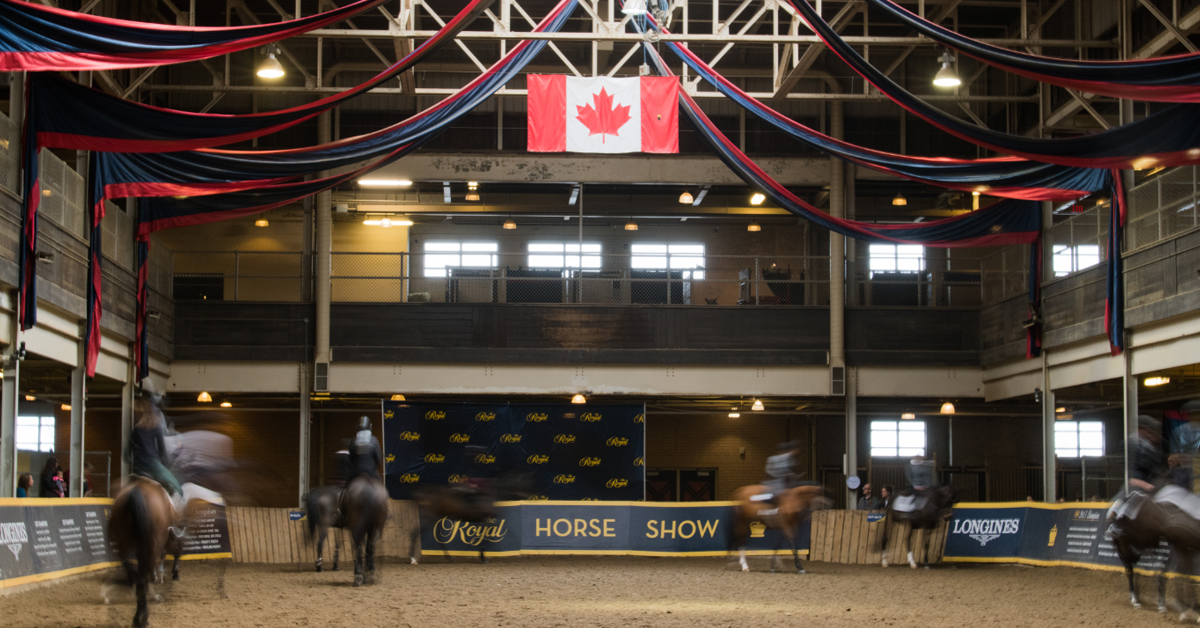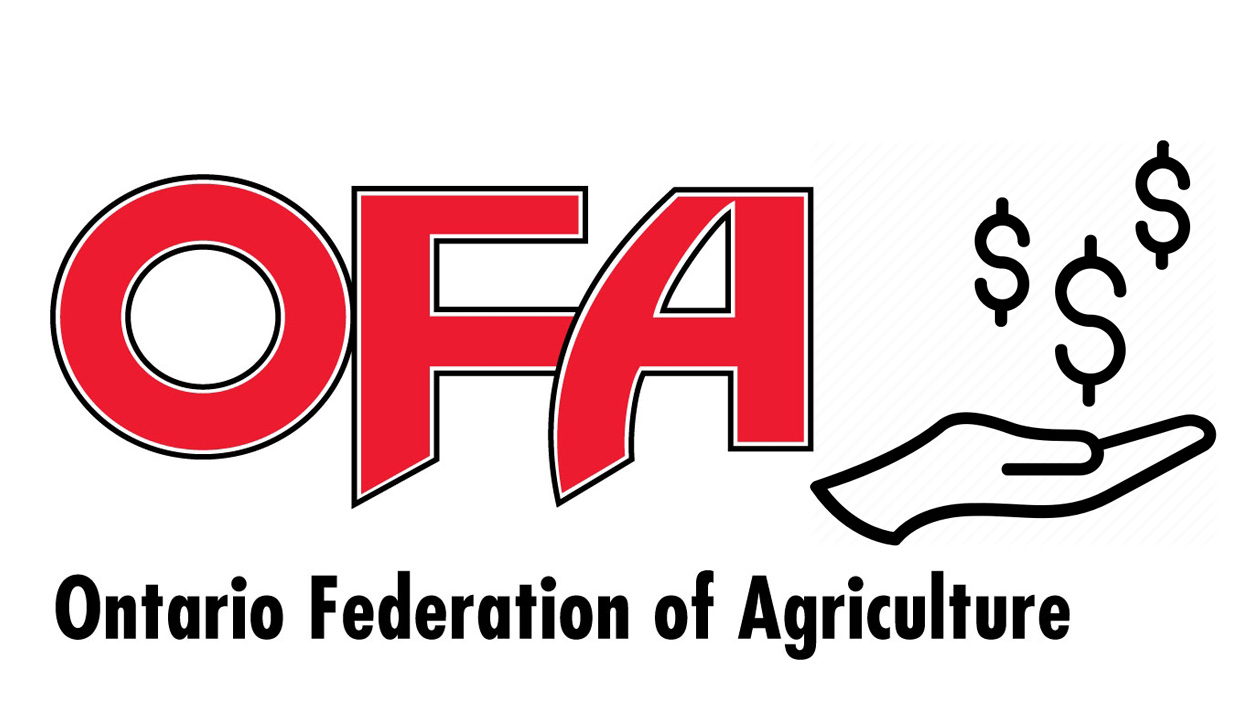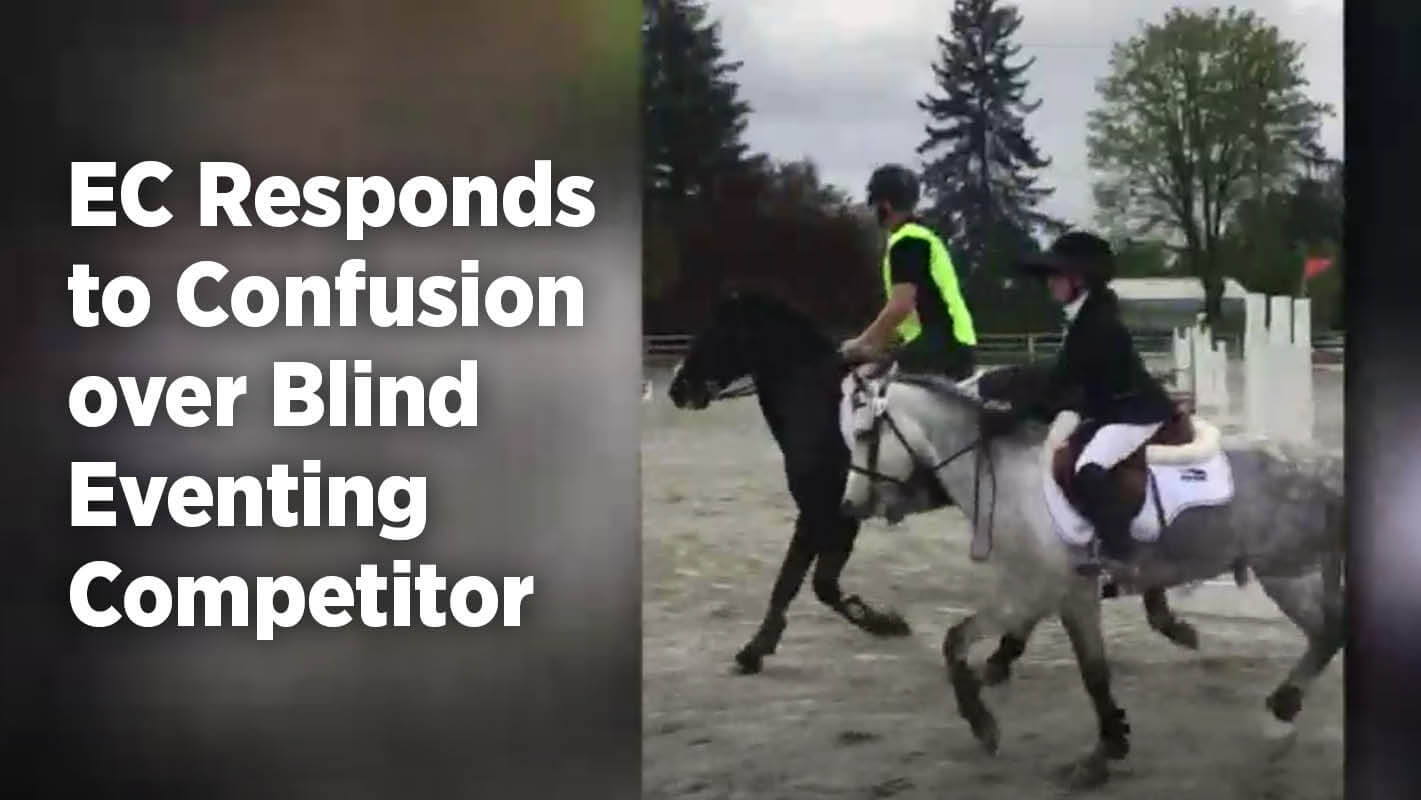Kyra Barrett, a 10-year-old girl who has been legally blind since birth, is an accomplished rider who loves riding in low-level eventing competitions near her home in Pritchard, BC. She navigates by following her coach who is mounted on a guide horse and gives her verbal instructions. Until recently, she had been operating as a certified para athlete, a designation she received earlier this year from Equestrian Canada (EC).
Recently, according to Kyra’s mother, Hayley, EC pulled the certification because a ‘guide horse’ was not allowed as an approved aide. The decision was made after an able-bodied rider lodged a complaint that Kyra, who has some limited sight in low-light conditions, had an unfair advantage. In a Global News report (here), it was reported that para-equestrian program coordinator Jamie-Ann Goodfellow had explained to Hayley that Kyra is welcome to compete in able-bodied dressage, but only with a pre-approved list of aids (see below). Hayley also complained that while EC’s decision was made in late June, the family was not informed until August 20th.
On August 27, EC released the following statement:
“While health information and documentation related to Equestrian Canada (EC) classification is confidential, EC can confirm that the results of the EC Classification Advisory Group review for athlete, Kyra Barrett, were provided to Barrett’s guardians on July 3, 2019.
Following EC protocol, the classification review was based on recommendations from the Canadian Blind Sports Association, and determined Kyra Barrett to be classified as profile 37b and Grade VI – Not Eligible for Para-Dressage (NE) as per FEI Para Equestrian Classification Rules.
Athletes classified as Grade VI are not eligible to compete in EC sanctioned para-dressage classes, but can compete in EC sanctioned able-bodied dressage classes with pre-approved compensating aids. As published in the EC Para-Dressage Classification Master List, Ms. Barrett is permitted to use the following compensating aids:
· Large visor on helmet
· Sunglasses
· Large letters or “living letters” (persons calling out the letters in the arena)
Classified athletes are not barred from competing in any EC-sanctioned competitions, the rules simply stipulate that when competing with compensating aids, athletes do so within the parameters of their assessment. Currently, the only recognized para-equestrian disciplines under both EC Rules and FEI Rules are para-dressage and para-driving. Therefore, these are the only two disciplines for which classification and approved compensating aids exist for EC-sanctioned competitions.
EC Rules are not created based on individual participants or situations, but rather to implement best practices concerning safety and fair play for all participants and considering applicable human rights legislation. EC is committed to creating an open, accessible environment that allows everyone to experience equestrian sport in a safe and enjoyable manner.
EC looks forward to continuing to work with para sport and equestrian governing bodies and stakeholders, and reviewing current rules and classification policies on an ongoing basis to support the growth and accessibility of equestrian sport in Canada. Adaptive aids are on the agenda for EC discipline committees to discuss this coming fall. Safety is paramount and the EC Rules exist to set standards in matters of safety, horse welfare, ethics, conduct, and fair play, thereby creating a safe and positive environment for all participants. Decisions to change or implement rules are not taken lightly, and involve significant collaboration with experts to ensure they meet EC’s mandate of providing fair and safe sport environments for all participants.”
When asked about the apparent lag time from when the rider’s aids were originally assessed in the spring to when the letters containing the results of that assessment was received, an EC spokesperson commented, “Kyra Barrett’s compensating aids assessment was completed on March 9, 2019. With both national-level and FEI-level classification, there is typically a wait period between the assessment and the completion of the review, to allow time for due process with all relevant groups and stakeholders involved in the classification.
“The final approval for Kyra Barrett’s permitted compensating aids took place on June 27, 2019. EC files confirm a letter containing the final results of the assessment was provided to Kyra Barrett’s guardians on July 3, 2019.”
Currently, the only recognized para-equestrian disciplines under both EC Rules and FEI Rules are para-dressage and para-driving. Compensating aids are assessed on a case-by-case basis in accordance with the methods and standards of the FEI as outlined in their classification rules. The standard list of aids can be accessed here.
More from Horse Sport:





